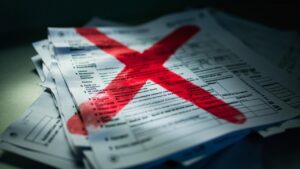Introduction
Compton gang allegations defense is critical for those wrongly accused. Imagine being stopped by police simply for walking down your street, labeled a gang member based on where you live or who you know.
This isn’t a hypothetical scenario; it’s the harsh reality for many individuals in Compton, where the shadow of gang allegations looms large, impacting countless lives and futures. The pervasive issue of being unfairly associated with gang activity has created a climate of fear and mistrust, where innocent people are often caught in a web of suspicion and prejudice.
The consequences of being labeled a gang member in Compton are devastating and far-reaching. It can lead to the loss of job opportunities, housing discrimination, and social isolation. Individuals may face increased police scrutiny, harassment, and even wrongful convictions. The stigma attached to gang affiliation can strain relationships with family and friends, making it difficult to rebuild trust and move forward. The long-term impact on one’s reputation and future prospects can be immeasurable.
This blog post aims to shed light on the reality of unfair gang allegations in Compton and to offer a roadmap for fighting back. We will explore how innocent people become targets, the legal and social ramifications of being labeled a gang member, and the strategies you can use to defend yourself. Our goal is to provide information, resources, and hope to those wrongly accused and to empower them to reclaim their lives and their reputations.
Understanding the Stakes
When an individual is unjustly branded as a gang member in Compton, the ramifications extend far beyond a simple label. Law enforcement agencies often rely on gang databases, which are riddled with inaccuracies and subjective criteria. Inclusion in these databases, even without legitimate evidence, can trigger a cascade of negative consequences, altering the course of a person’s life.
The criteria for inclusion are often vague and can include factors such as residing in a certain neighborhood, associating with certain individuals, or even wearing specific clothing. The lack of transparency and due process in adding individuals to these databases makes it easy for innocent people to be swept up in the system, facing challenges that are difficult to overcome.
The legal repercussions of being labeled a gang member are severe. Individuals may face increased charges for alleged offenses, harsher sentencing if convicted, and stringent probation restrictions that significantly curtail their freedom. For example, a minor offense that would normally result in a lenient penalty could be amplified due to perceived gang affiliation, leading to disproportionately harsh punishment.
Furthermore, the stain of gang membership can create barriers to accessing essential services and opportunities. Landlords might refuse to rent to individuals with a known or suspected gang association, and employers may hesitate to hire them, fearing potential risks or negative publicity. These challenges make it exceedingly difficult for those wrongly accused to reintegrate into society and lead productive lives.
The social and economic consequences of being labeled a gang member are equally devastating. Families can be torn apart by the stigma and fear associated with gang affiliation. Relationships with friends and loved ones may become strained as individuals distance themselves to avoid being associated with the accused.
Moreover, the individual may face targeted harassment from law enforcement and other community members, further isolating them and perpetuating a cycle of negativity. Even after an individual has demonstrably distanced themselves from any gang activity, the label can linger, casting a long shadow over their future prospects. The insidious nature of these allegations requires a robust and informed compton gang allegations defense.
| Consequence | Description |
|---|---|
| Legal Ramifications | Increased charges, harsher sentences, probation restrictions. |
| Social Stigma | Strained relationships, community ostracization. |
| Economic Hardship | Difficulty finding employment and housing. |
| Database Inclusion | Often based on subjective and vague criteria. |
The Problem With Profiling
Racial profiling casts a long, dark shadow over Compton, ensnaring innocent individuals in the web of gang enforcement. This happens when law enforcement relies on characteristics like race, ethnicity, neighborhood of residence, clothing style, or social associations to identify potential gang members. The problem is these factors are often superficial and have little to do with actual gang involvement. For example, living in a high-crime area shouldn’t automatically equate to gang affiliation.
Yet, in Compton, this kind of assumption can lead to increased police scrutiny, harassment, and even wrongful arrest. A young man wearing certain colors or associating with friends from a particular neighborhood might find himself unfairly targeted, regardless of his actual behavior or intentions. This creates a climate of fear and distrust, particularly within communities already struggling with poverty and limited opportunities.
One of the most troubling aspects of this profiling is how it perpetuates existing biases and misconceptions. Police officers may be influenced by stereotypes about certain racial or ethnic groups, leading them to disproportionately target individuals from those communities. These biases can manifest in subtle ways, such as increased surveillance, pretextual stops, and aggressive questioning.
Even seemingly innocuous activities, like attending a community event or participating in a sports league, can be misinterpreted as evidence of gang involvement if the individual fits a certain profile. The consequences can be devastating, as these encounters can lead to arrest, prosecution, and a criminal record that follows the individual for life. This then is where the compton gang allegations defense comes into the equation.
Guilt by association is another insidious form of profiling that affects many innocent people in Compton. This occurs when an individual is targeted simply because of their relationships with suspected gang members, even if they have no personal involvement in criminal activity. For example, a young woman who is dating a man with a criminal record might be labeled as a gang associate, regardless of her own behavior or character.
This form of profiling is fundamentally unjust because it punishes individuals for the actions of others and violates the principle of individual responsibility. It also creates a chilling effect, discouraging people from forming relationships with others who may be perceived as risky, further isolating marginalized communities.
| Profiling Factor | Potential Misinterpretation | Consequences |
|---|---|---|
| Neighborhood of Residence | Living in a high-crime area = Gang Member | Increased Police Scrutiny, Harassment |
| Clothing Style | Wearing certain colors = Gang Affiliation | Wrongful Arrest, Prosecution |
| Social Associations | Associating with suspected gang members = Guilty by Association | Social Isolation, Limited Opportunities |
Decoding the System
Gang injunctions represent a significant aspect of law enforcement’s approach to gang activity in Compton, but their implementation and impact raise serious concerns about due process and fairness. These court orders, typically targeting specific geographic areas, aim to curb gang-related crime by imposing restrictions on individuals named in the injunction.
These restrictions can include curfews, prohibitions on associating with known gang members, and limitations on entering specific “safety zones.” While proponents argue that injunctions are a necessary tool to protect communities from gang violence, critics contend that they often cast too wide a net, ensnaring innocent individuals and violating their constitutional rights.
Understanding the Scope and Restrictions
The burden of proof for being named in a gang injunction is often lower than in a criminal trial, relying heavily on police testimony and alleged associations, which can be subjective and unreliable. The long-term consequences of being subject to a gang injunction can be devastating, further marginalizing individuals and hindering their ability to lead productive lives.
Potential for Abuse and Due Process Concerns
The potential for abuse within the gang injunction system is substantial. The criteria for identifying and including individuals in these injunctions are often vague and open to interpretation, leading to the misidentification of innocent people based on factors such as their appearance, neighborhood, or social connections. This raises serious due process concerns, as individuals may be subjected to significant restrictions without a fair opportunity to challenge the allegations against them.
Furthermore, proving non-affiliation with a gang can be incredibly difficult, as the burden often falls on the individual to demonstrate their innocence. The system can create a self-perpetuating cycle, where individuals are stigmatized and marginalized due to their inclusion in the injunction, further increasing their risk of future involvement with the criminal justice system. The compton gang allegations defense often requires proving that the individual is not associated with any gang.
Building Your Defense
This section delves into the crucial steps you can take to actively defend yourself against unfair gang allegations in Compton. It is easy to feel lost and overwhelmed, but understanding your rights and proactively building a strong defense is paramount.
The information contained here is not a substitute for legal advice, but a starting point for understanding the process and steps you can take to protect yourself. A core component of a successful defense is often to directly address the basis of the compton gang allegations defense, and highlight the weaknesses in the prosecution’s case.
Gathering Evidence and Building Your Case
Building a solid defense starts with meticulously gathering evidence to support your claim of non-affiliation. This involves documenting your daily activities, keeping records of your employment or school attendance, and collecting character references from credible sources. Create a detailed timeline of your whereabouts during times when alleged gang-related activities occurred.
The more concrete evidence you can provide to demonstrate your innocence, the stronger your defense will be. Affidavits from friends, family members, coworkers, or community members can serve as powerful testimony to your character and lack of gang involvement.
The Importance of Legal Counsel
Securing an experienced criminal defense attorney is perhaps the most critical step in fighting unfair gang allegations. Look for an attorney with a proven track record in handling gang-related cases in Compton. A knowledgeable attorney will understand the nuances of local law enforcement practices, gang injunctions, and the specific challenges involved in defending against these types of allegations.
They can assess the evidence against you, identify potential weaknesses in the prosecution’s case, and develop a strategic defense tailored to your specific circumstances. This expert will become your advocate in the courtroom.
Challenging the Prosecution’s Narrative
A vital part of the defense strategy involves challenging the validity of the evidence presented against you. This may include questioning the reliability of police observations, scrutinizing the credibility of informant testimony, and challenging the accuracy of gang databases. It is essential to understand that the prosecution bears the burden of proving your guilt beyond a reasonable doubt.

Your attorney can argue that the evidence is insufficient, circumstantial, or based on flawed assumptions. They can also present alternative explanations for your actions or associations, highlighting any instances of mistaken identity or misinterpretation of your behavior.
Documenting Your Life
The importance of creating a comprehensive paper trail cannot be overstated. In the fight against unfair gang allegations, solid documentation becomes your shield, providing concrete evidence to counteract potentially biased or inaccurate claims. This process involves meticulously recording aspects of your daily routine, affiliations, and overall presence in the community.
Think of it as building a narrative of your life, one that is transparent, consistent, and easily verifiable. This narrative serves as crucial support when challenging the narratives presented by law enforcement and can significantly strengthen your position in court.
Effectively managing your digital footprint is also essential in today’s digital age. Social media, while a tool for connection, can also be a source of misinterpretation if not handled carefully. Be mindful of the content you share, the groups you join, and the images you post.
Adjust privacy settings to limit access to your personal information, and regularly review your online activity to ensure it accurately reflects your character and affiliations. Moreover, proactively engaging with your community can serve as invaluable support. Letters from teachers, employers, religious leaders, and neighbors can speak volumes about your character and your commitment to positive contributions.
Finally, it’s vital to be aware of your surroundings and avoid any activities that could be misconstrued or interpreted as gang-related. This means being mindful of the places you frequent, the people you associate with, and the clothing you wear. While this may feel like an infringement on your personal freedom, it is a necessary precaution when facing scrutiny based on compton gang allegations defense. Keeping detailed records is essential:
- A log of daily activities, including times, locations, and names of people you were with.
- Employment records, pay stubs, and performance reviews.
- School attendance records, grades, and extracurricular activities.
- Documentation of any community involvement, such as volunteering or participation in local events.
Finding Support and Resources
Here’s a guide to navigating the resources available in Compton if you’re grappling with unfair gang allegations. It’s easy to feel isolated, but there’s a network of support ready to help you fight back and reclaim your life. Accessing the right resources is a critical step in challenging these allegations and rebuilding your future.
First, it is vital to connect with legal aid organizations and attorneys in Compton who specialize in gang-related cases. These attorneys are experienced in dealing with the nuances of local law enforcement practices and the courts. They can evaluate your case, advise you on your rights, and represent you in legal proceedings. Look for organizations that offer free or low-cost legal services to those who qualify.
Here are some potential avenues for support:
- Legal Aid Foundation of Los Angeles (LAFLA): Often provides free legal services to low-income individuals in civil matters. While they may not directly handle criminal gang cases, they can offer advice and referrals.
- The American Civil Liberties Union (ACLU) of Southern California: This organization is known for its work in protecting civil liberties, including challenging unfair policing practices. They might be able to offer legal assistance or connect you with resources.
- Local Bar Associations: Contact the Los Angeles County Bar Association, as they often have referral services that can connect you with attorneys specializing in criminal defense.
Beyond legal assistance, many community organizations in Compton offer support to individuals and families impacted by gang violence and allegations. These organizations provide various services, including counseling, mentorship, job training, and educational programs.
They can provide a safe space to share your experiences, connect with others facing similar challenges, and access resources that can help you overcome the social and economic consequences of being labeled a gang member. Seeking support is a powerful step in your *compton gang allegations defense*, and these organizations are there to help you navigate the system.
Furthermore, don’t hesitate to seek information on how to file complaints against police misconduct. If you believe you have been unfairly targeted or harassed by law enforcement, it is essential to document the incidents and file a formal complaint. This not only protects your rights but also contributes to holding law enforcement accountable and promoting fairer practices in the community.
You can typically file complaints with the internal affairs division of the Compton Police Department or through the Los Angeles County Sheriff’s Department, which also serves the area. Remember, you are not alone, and there are resources available to help you fight back against unfair gang allegations and reclaim your life in Compton.
Hope and Empowerment
The fight against unfair gang allegations can feel like a Sisyphean task, an endless uphill battle against a system seemingly rigged against you. But it’s crucial to remember that victory is possible, and many have successfully navigated this challenging terrain.
Their stories serve as beacons of hope, illuminating the path forward and demonstrating the power of resilience in the face of adversity. These individuals, once burdened by the weight of false accusations, have gone on to reclaim their lives, their reputations, and their futures.
Central to their success was an unwavering commitment to their own truth and a refusal to be defined by the labels others sought to impose. They understood that fighting back required more than just legal action; it demanded a holistic approach that addressed the emotional, social, and psychological toll of being wrongly accused. They sought support from their families, their communities, and from therapists and counselors who helped them process the trauma of their experiences.
Moreover, many found empowerment in advocating for others, using their experiences to raise awareness about the injustices of gang profiling and to push for policy reforms. This commitment to advocacy not only helped them heal but also transformed them into powerful agents of change within their communities.
While the road to exoneration may be long and arduous, remember that you are not alone. Many people in Compton have successfully challenged these allegations. The legal strategies discussed earlier, coupled with a strong support system and an unyielding belief in your own innocence, can significantly improve your chances of a favorable outcome.
Building a strong compton gang allegations defense requires patience, perseverance, and a willingness to fight for what is rightfully yours – your freedom, your reputation, and your future. It is essential to draw strength from the experiences of others who have successfully navigated similar challenges and to remember that even in the darkest of times, hope remains a powerful force.
Conclusion
The fight against unfair gang allegations in Compton is far from over, but armed with the knowledge and resources outlined here, individuals and families can stand up for their rights and reclaim their futures. It requires courage, persistence, and a strong support system.
We must remember that every case fought, every injustice exposed, and every voice amplified contributes to a larger movement for systemic change. The journey is arduous, but the destination – a Compton where justice prevails and innocent lives are not unjustly tarnished – is worth fighting for.
It’s imperative to understand that challenging these allegations requires a multifaceted approach. It involves not only legal strategies, such as building a solid *compton gang allegations defense*, but also proactive steps to document your life, build community support, and hold those responsible for perpetuating unfair practices accountable.
Explore the resources we’ve provided, connect with legal aid organizations, and don’t hesitate to seek support from community groups. Your story matters, and your fight for justice deserves to be heard and supported.
Ultimately, the battle against unfair gang allegations is a fight for the soul of Compton. It is a fight for a community where everyone is treated with dignity and respect, regardless of their background or circumstances. It is a fight for a future where young people can pursue their dreams without being burdened by the shadow of unjust accusations.
Share this information, raise awareness, and stand in solidarity with those who are fighting for justice. If you or someone you know is facing unfair gang allegations, seek help immediately. Together, we can build a more just and equitable Compton for all.
Frequently Asked Questions
What is the legal definition of a gang allegation in the context of a Compton gang case?
A gang allegation in a Compton gang case, legally speaking, involves asserting that a crime was committed for the benefit of, at the direction of, or in association with a criminal street gang. This legal determination hinges on demonstrating the existence of a criminal street gang, as defined by law, and establishing a connection between the alleged crime and the gang’s activities.
The purpose must be to promote, further, or assist in criminal conduct by gang members.
What types of evidence are typically used to support gang allegations in Compton?
Evidence used to support gang allegations in Compton often includes police testimony regarding gang membership and behavior patterns. Prosecutors frequently present evidence of gang tattoos, clothing, and symbols displayed by the defendant.
Witness testimony, including statements from alleged gang members or victims, may also be presented. Prior criminal records, especially those involving co-defendants affiliated with the same gang, can also bolster gang-related claims.
What are common defenses against gang allegations in a Compton criminal case?
Common defenses against gang allegations in a Compton criminal case often involve challenging the validity of the gang designation itself or contesting the defendant’s alleged affiliation. Attorneys may argue that the prosecution has not adequately proven the existence of a qualifying criminal street gang, or that the crime was not committed for the benefit of the gang.
Another strategy is to present evidence of mistaken identity or lack of intent to participate in gang activity.
How does the prosecution typically prove gang affiliation in a Compton trial?
The prosecution typically proves gang affiliation in a Compton trial by presenting expert testimony from law enforcement officers specializing in gang investigations. This testimony can describe the gang’s structure, common activities, and methods of operation.
They also may introduce photographs or social media posts associating the defendant with known gang members or activities. Circumstantial evidence, such as associating with gang members or being present at gang gatherings, is also frequently introduced.
What is the potential impact of a gang enhancement on sentencing in Compton?
A gang enhancement can significantly increase the sentence in a Compton case. If a defendant is convicted of a crime with a gang enhancement, the judge can add years to the base sentence.
This can result in a much longer prison term than if the crime was committed without gang involvement. The actual increase depends on the underlying crime and the specific laws in place, but the potential impact can be substantial.









